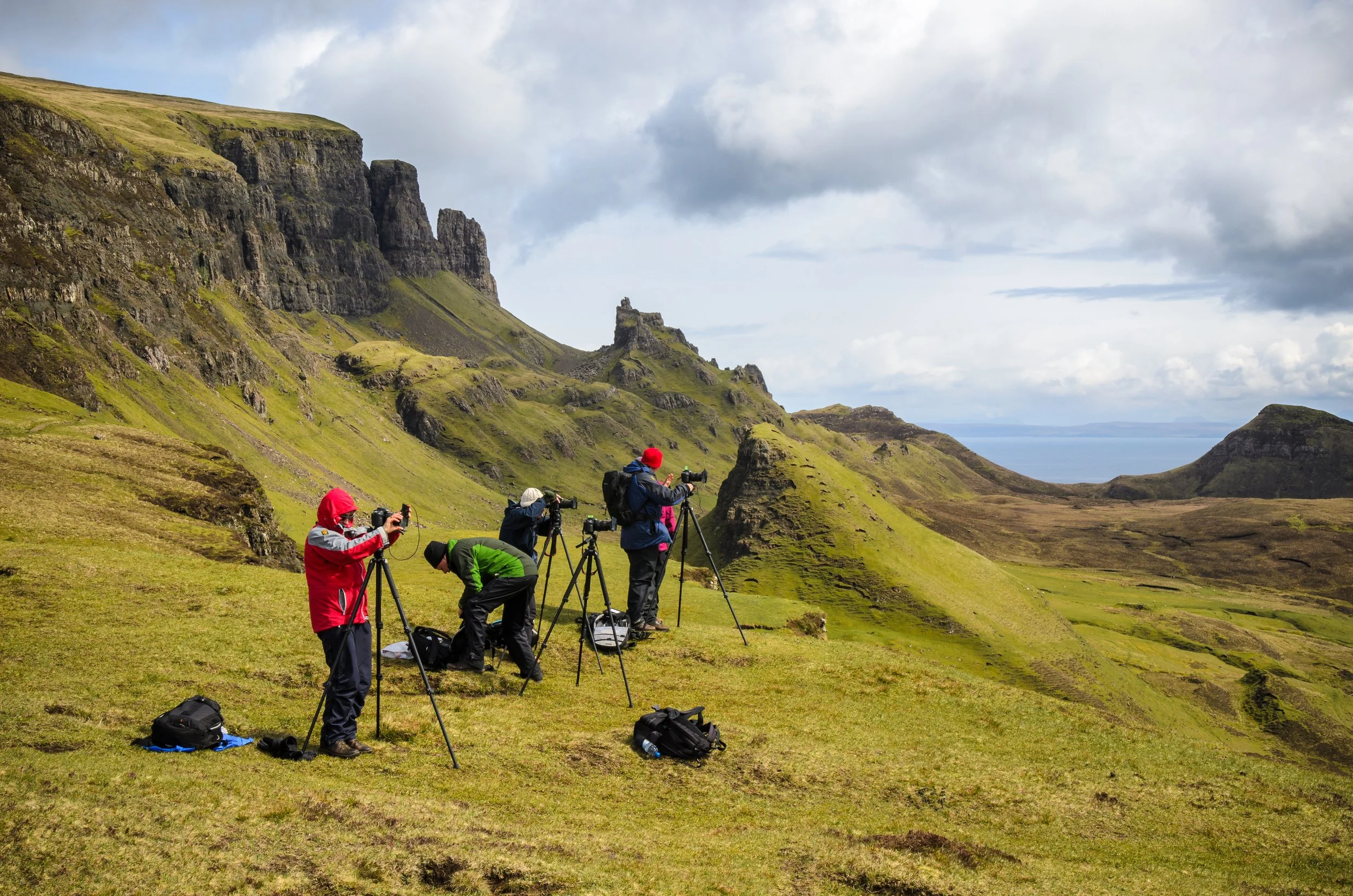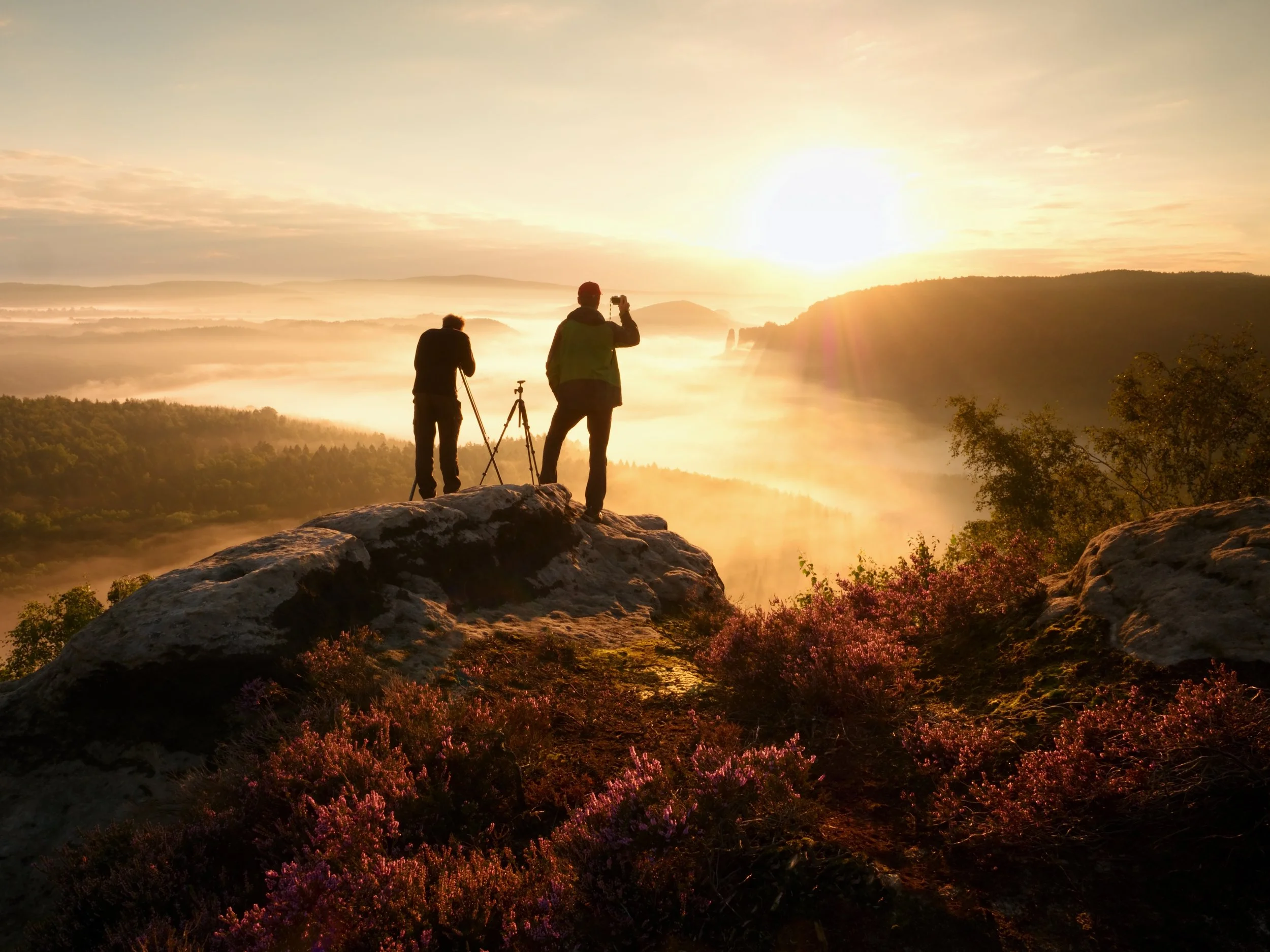Stargazers Unite: Finding Your Local Astrophotography Community
There's something magical about standing under the night sky, camera in hand, surrounded by people who share your passion. I’ve supremely grateful for my passion for photography because, over the years, I’ve met countless others, people just like me, who are as thrilled as I am about being out in the open, in the pursuit of a single great photo.
I’ve spent countless nights gazing up at the stars, and I can confidently tell you that the difference between shooting alone and shooting with a group is like night and day.
The American Southwest offers some of the world's premier dark sky locations, from Arizona's pristine deserts to Utah's towering red rock formations. But even with perfect conditions and quality gear, astrophotography can feel overwhelming without a supportive community. That's why connecting with fellow night sky enthusiasts isn't just enjoyable – it's essential for growth as a photographer.
Why Join an Astrophotography Community?
Safety in Numbers
Let's face it – wandering into remote locations can be daunting. Regular stargazing meetups provide safety through numbers, allowing you to explore dark sky locations you might not venture to alone. Plus, experienced members often know the safest routes, best parking spots, and areas to avoid—knowledge that's invaluable when you're navigating unfamiliar terrain in the dark.
Learning Through Shared Experience
While online tutorials and workshops provide excellent foundations (more on those later), there's nothing quite like learning from peers in real-time. Whether it's troubleshooting focus issues, sharing processing techniques, or discovering new equipment tricks, the collective knowledge of a community is priceless. I recently attended a group shoot where a fellow photographer showed me a simple intervalometer technique that transformed my star trail photography – something I might never have discovered on my own.
Equipment Access and Testing
One of the best perks of joining local astrophotography groups is the opportunity to try different equipment. Many communities have sharing or renting programs. Before investing in expensive gear, you can test various setups and get honest feedback from actual users. Speaking of partnerships, you can rent gear at a 15% discount from Lensrentals.com with the code TENSIX15.
Finding Your Local Community
Astronomy Clubs in the Western United States
The Southwest's clear skies and low light pollution have fostered a thriving astronomy community. Here are some notable groups:
Tucson Amateur Astronomy Association (Arizona): Regular stargazing meetups and astrophotography workshops
Salt Lake Astronomical Society (Utah): Monthly star parties and equipment sharing programs
Las Vegas Astronomical Society (Nevada): New member mentoring and dark sky site access
Southern California Astronomy Group: Regular gatherings at Joshua Tree National Park
Skyandtelescope.org offers an interactive map of astronomy clubs in the USA.
Online Communities with Local Chapters
While traditional astronomy clubs are excellent, don't overlook online communities that organize local events. Facebook groups and regional photography forums often coordinate impromptu shooting sessions when conditions are perfect. These groups are especially valuable for last-minute aurora alerts or meteor shower gatherings.
Workshop Alumni Networks
Photography workshops aren't just about learning—they're about building lasting connections. Many workshop participants form their own shooting groups afterward, continuing to meet and collaborate long after the formal instruction ends. Our own workshop alumni regularly organize stargazing meetups at locations we've visited together, building on the skills and friendships formed during the initial experience.
Consider joining one of our upcoming Astro Masterclass sessions to connect with fellow enthusiasts while learning essential techniques. These workshops are designed not just for skill development but for community building, with many participants forming lasting shooting partnerships.
Making the Most of Community Membership
Dark Sky Adventures & Location Scouting
Ever tried finding that perfect spot in the desert at 2 AM? Local groups often organize scouting trips during daylight hours to discover prime shooting locations. From hidden arches in Utah to secret viewpoints overlooking the Las Vegas valley, community members share locations you won't find on Google. Plus, many groups maintain private maps of light pollution-free zones, seasonal Milky Way alignment spots, and safe parking areas – invaluable intel for night shoots.
Skill-Sharing Sessions That Actually Work
Forget basic YouTube tutorials. Community membership gives you access to specialized knowledge like:
Local weather pattern expertise (crucial for predicting clear skies)
Location-specific exposure settings (that actually work for your area's light pollution levels)
Creative techniques using local landscapes (like catching star reflections in desert pools after rare rains)
Processing workflows optimized for high-desert conditions
Special Event Planning & Epic Shoots
Imagine coordinating with 20 other photographers to capture the 2024 Orionids meteor shower from different vantage points, or organizing a weekend trip to capture bioluminescent waves in California. Local communities often plan epic group shoots around celestial events, turning them into unforgettable adventures. These organized events might include:
Multi-day meteor shower camping trips
Full moon rises over iconic Southwest landmarks
Star trail workshops at ancient petroglyph sites
Aurora chase groups (yes, they're sometimes visible in the northern Southwest!)
Getting Started: Your First Steps
Preparing for Your First Meetup
Before attending your first stargazing meetup, consider these essentials:
Basic Equipment
Your camera and tripod
Red flashlight (preserves night vision)
Warm layers (desert nights get cold!)
Snacks and water
Camping chair for downtime
Community Etiquette
Arrive before dark to set up
Keep white lights off
Ask before adjusting others' equipment
Share your knowledge freely
Contribute to location scouting
Building Meaningful Connections
Remember that every expert was once a beginner. Don't be afraid to ask questions or share your early attempts. The most welcoming communities grow through active participation from members at all skill levels. Consider volunteering for group roles like social media coordinator or event planner —it's a great way to deepen your involvement while helping the community grow.
Taking Your Community Involvement Further
From Meetups to Mastery
As you become more involved in your local community, consider expanding your horizons through structured learning experiences. Our Astro Masterclass workshops complement community involvement by providing technical foundations you can share with your group. These sessions, offered in prime dark sky locations across the Western US, are perfect for both solo learning and group participation.
Organizing Your Own Events
Once you're comfortable with the basics, consider organizing your own stargazing meetups. Start small with mini-sessions focused on specific techniques or locations. Many successful group leaders began by simply creating Facebook events for informal shooting sessions at local dark sky spots.
Contributing to Community Growth
Strong communities thrive on member contributions. Consider:
Mentoring newcomers
Sharing location guides
Creating tutorial content
Organizing gear swap meets
Planning group exhibitions
Conclusion
Finding your place in the astrophotography community isn't just about improving your technical skills – it's about joining a passionate group of people who share your love for the night sky. Whether you're just starting out or looking to elevate your work, the Western United States offers incredible opportunities for connection and growth through regular stargazing meetups and community involvement.
Ready to take the next step? Join one of our upcoming workshops to meet fellow enthusiasts and build your skills in some of the Southwest's most stunning locations. Or reach out to one of the local groups mentioned above – your next great shot (and lasting friendship) might be just one meetup away.
Remember, every master astrophotographer started as a beginner, and most will tell you that community support played a crucial role in their journey. The night sky belongs to all of us – why not explore it together?




